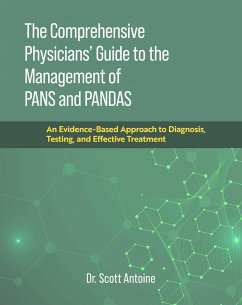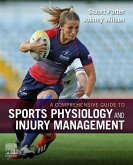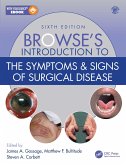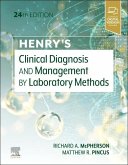An evidence-based guide for doctors diagnosing, testing, and treating children with PANDAS (Pediatric Autoimmune Neuropsychiatric Disorder Associated with Strep infections). In the early 1990s, a group of researchers at the National Institute of Mental Health began collecting data on children who had developed neuropsychiatric disorders (OCD and tics) following infections. They found evidence that antineuronal antibodies had developed in some of these children which attacked the basal ganglia region of the brain. MRI and PET scans in these children demonstrated inflammatory changes in the basal ganglia as well. In 1997, the researchers published the first article to describe this syndrome that they named PANDAS (Pediatric Autoimmune Neuropsychiatric Disorder Associated with Strep infections). In PANDAS, an autoimmune attack on the brain occurs following a Strep infection. PANS (Pediatric Acute-onset Neuropsychiatric Syndrome) is a broader term that also includes cases following exposure to other infections, toxins, and even stress. Clinicians treating children with PANS and PANDAS have found that antibiotics targeted at the offending organisms, steroids, and IVIG results in marked improvement and occasionally complete remission of the neuropsychiatric symptoms. Disturbing symptoms consistent with many DSM-5 psychiatric disorders manifest in patients with PANS and PANDAS—yet we know that there is a biologic basis for the changes in these children. As a result, these disorders require us, as physicians, to view mental illness in an entirely new way. Resistance to this change in paradigm has made PANS and PANDAS difficult for clinicians to diagnose, unbearable for parents to endure, and controversial for scholars to accept. As such, there is no recognized standard of care. We have written this work in an effort to change that. This is a textbook by physicians for physicians. It was written to bring back some of the art of medicine to physicians caring for a group of children and families who really need it. PANS and PANDAS are complex disorders that demand a rich, multifaceted response with novel treatment approaches. The material in this book is assembled from the peer-reviewed medical literature, in combination with over thirty years of clinical experience caring for the sickest patients, both in and out of the hospital. Here you will find conclusive evidence for the existence and pathophysiology of PANS and PANDAS, alongside testing and treatment interventions the author has successfully used in his own practice with hundreds of children. The book concludes with rich appendices including commonly used labs, doses of medications and supplements, a sample flare protocol, extensive support for parents, sample IVIG orders, and much more. We hope this resource allows you, the physician, to help these suffering families heal.
Hinweis: Dieser Artikel kann nur an eine deutsche Lieferadresse ausgeliefert werden.
Hinweis: Dieser Artikel kann nur an eine deutsche Lieferadresse ausgeliefert werden.








